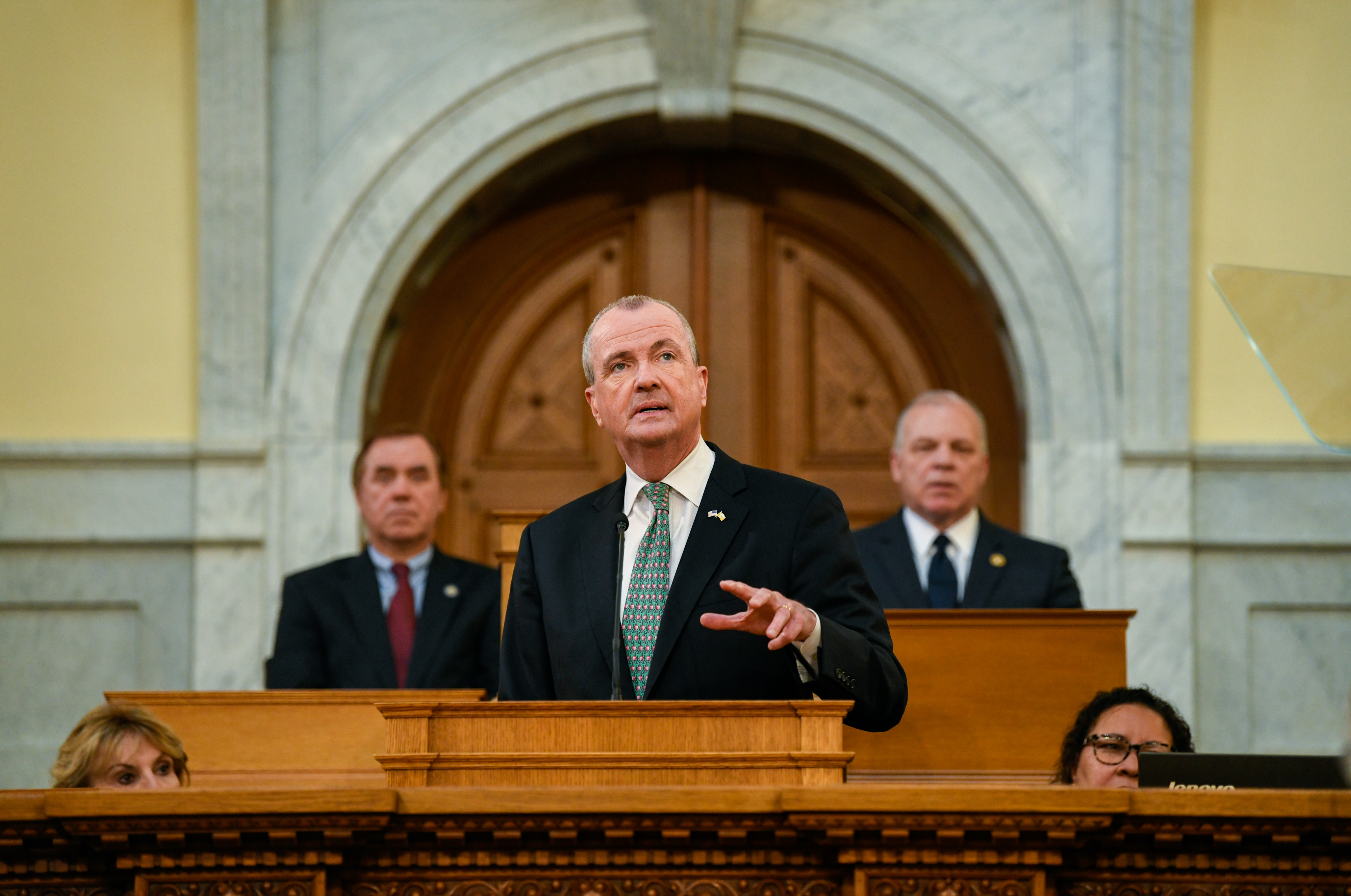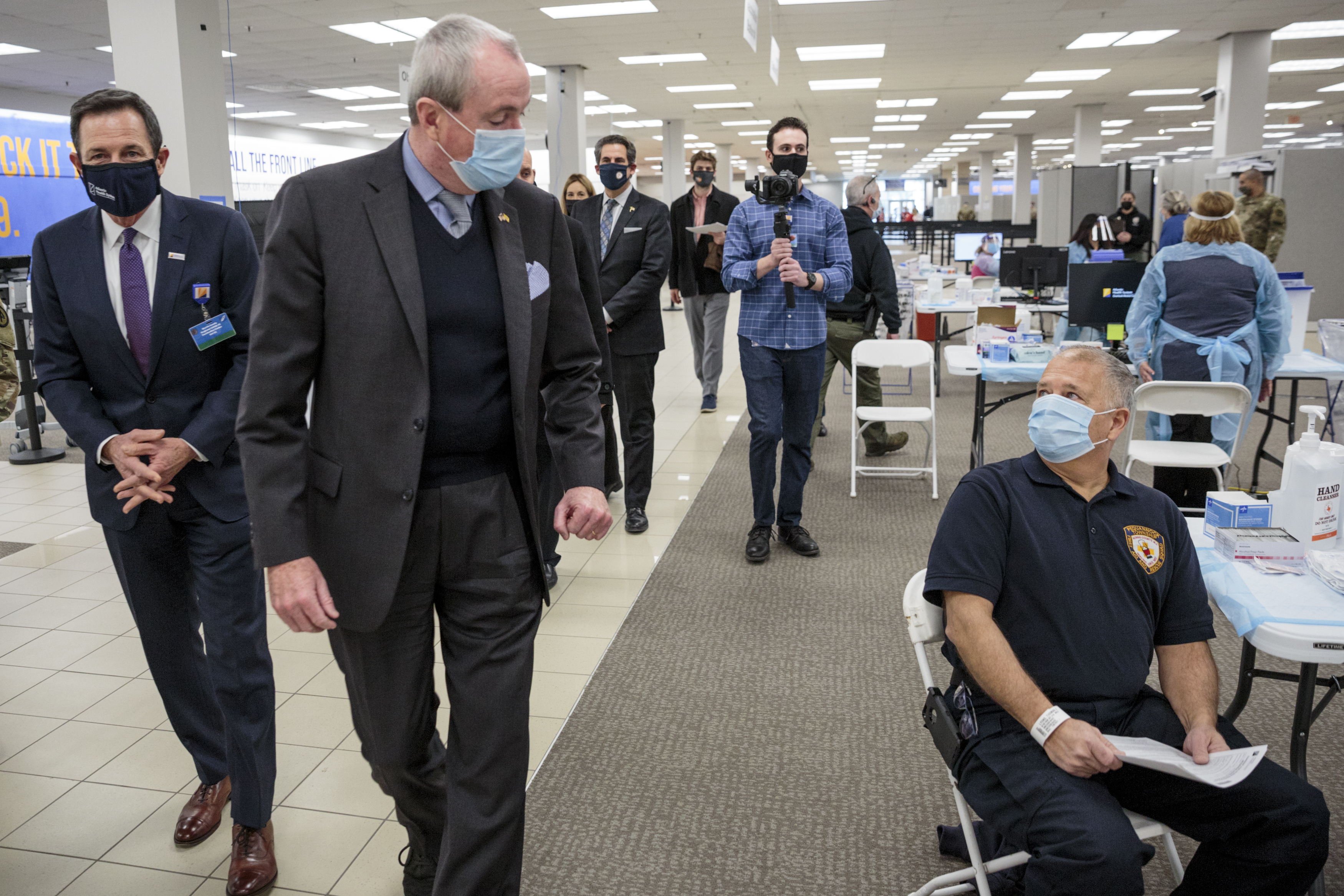What to Know
- Gov. Phil Murphy says New Jersey residents 65 and older, as well as those from 16 to 64 with serious medical conditions -- such as cancer, heart and kidney disease -- and smokers, can begin to be vaccinated with the COVID-19 shot on Thursday.
- Murphy said Wednesday the decision stemmed from a few factors, including what he said was a “strong appetite” for expanding the vaccine among the state’s 71 hospitals, along with guidance from the Trump administration and “signals” from the incoming Joe Biden White House.
- New Jersey has vaccinated about 237,000 people so far.
New Jersey is opening up its expanding coronavirus vaccination program to every resident in the state 65 years of age or older.
Gov. Phil Murphy announced Wednesday that people in that age bracket -- and people 16 to 64 years old "with medical conditions, as defined by the (Centers for Disease Control and Prevention) that increase the risk of severe illness from the virus" -- can begin getting their first doses of the COVID-19 vaccine starting Thursday. Some of the pre-existing conditions include cancer, heart disease and kidney disease. Millions of smokers are also now eligible.
Get top local stories in Philly delivered to you every morning. >Sign up for NBC Philadelphia's News Headlines newsletter.
"If you have preregistered at our vaccine website, http://covidvaccine.nj.gov, and are now eligible, you should soon be receiving your email that it is your time to make an appointment at a site near you to get your first vaccine dose," Murphy said.
You must have an appointment to get vaccinated as sites aren't permitting walk ups and supplies remain limited. No documentation of conditions or age will be required to get the vaccine, Health Commissioner Judith Persichilli said.
Around 1.47 million people are 65 and older in New Jersey, Persichilli said. Around 1 million people in the Garden State have predetermined medical conditions like cancer, COPD, Down syndrome, heart conditions, kidney disease, sickle cell disease, Type-2 diabetes and other conditions included in the CDC's list. She said another estimated 2 million smokers in the state also fall under the determination.
Not everyone was happy to see smokers now included in the vaccine program, questioning why they are getting priority. Persichilli said that smoking adds to your risk of an "adverse result" to COVID-19.
"Our goal is to get shots in arms," Murphy said, while noting that he doesn't want to see long lines like have been seen in Florida. "Folks, please be patient."
ANSWERS: What Can I Get the Coronavirus Vaccine?
Murphy said the decision stemmed from a few factors, including what he said was a “strong appetite” for expanding the vaccine among the state's 71 hospitals, along with guidance from the Trump administration and “signals” from the incoming Joe Biden White House.
Wednesday's announcement came a day after the federal government asked states to open up vaccines to people 65 and older and younger people at risk for the virus.
As of Wednesday, nearly 237,000 people in New Jersey had received a first dose of the COVID-19 vaccine as the state has administered vaccines to front-line health workers, people in long-term care facilities, police officers and first responders.
"Our vaccination program is ramping up and we’re prepared for this task," Murphy said, while also noting it's a work in progress.
Murphy's administration is aiming to have nearly 5 million people, or about 70% of the adult population, vaccinated in six months.
The expansion of vaccinations comes as New Jersey reported a record number of PCR test confirmed coronavirus cases Wednesday. The 6,922 new cases brought the total number of COVID-19 cases since the start of the pandemic to nearly 544,000. Nearly 59,000 positive antigen tests have also been reported.
The virus doesn't show signs of slowing down with the rate of transmission at 1.10 and the positivity rate (as of Jan. 9) at 13.53%.
More than 3,700 people were hospitalized with COVID-19 going into Wednesday, with more than 600 in intensive care. Persichilli said that hospitals have been working on contingency plans for an expected surge in patients in the coming weeks. So far, the number of COVID-19 patients haven't gotten to the highs experienced in the spring.
At least 18,070 people are confirmed to have died from coronavirus-related complications. More than 2,000 other deaths are suspected of being due to COVID-19.
"We’ve now crossed the threshold of 20,000 residents lost to COVID-19," Murphy said. "This is more than 25 times the number of New Jerseyans we lost on 9/11. For anyone left who still denies this is real, I don’t think there’s anything else we can say to try to convince you of reality."



